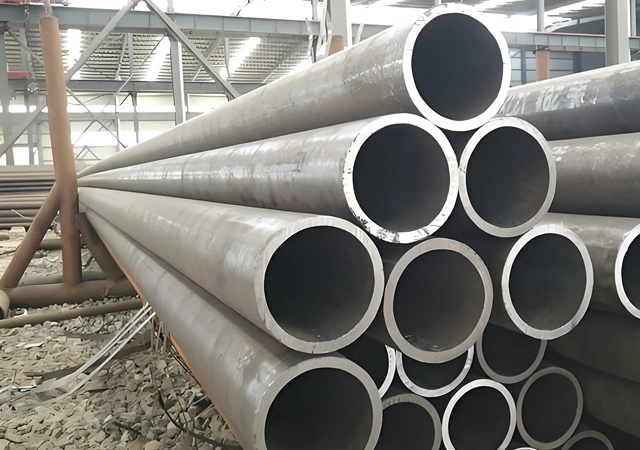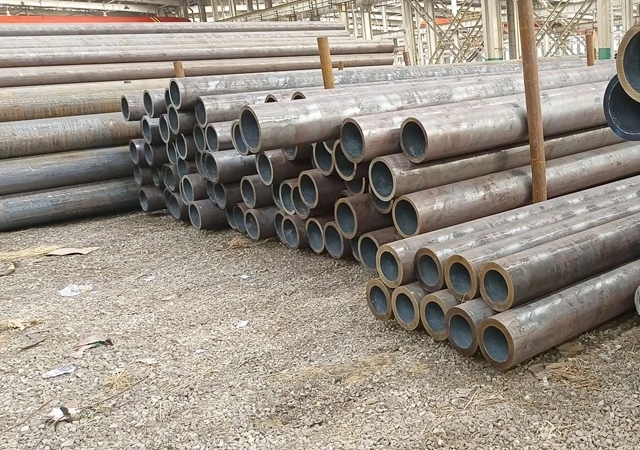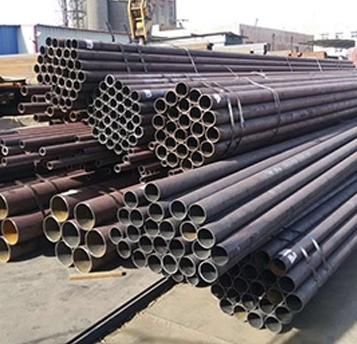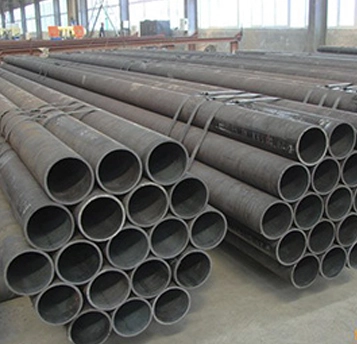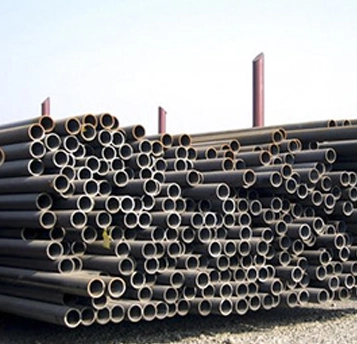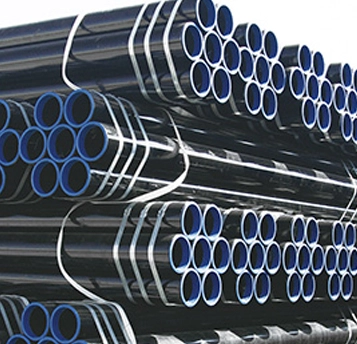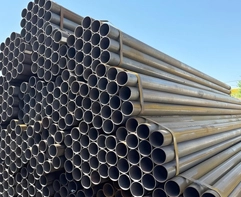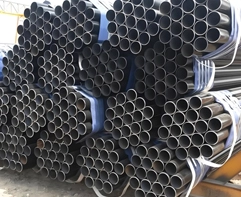| Standard | Grade | Chemical Composition (%) | Mechanical Properties |
| ASTM A53 | A | C: 0.25 max, Mn: 0.95 max, P: 0.05 max, S: 0.045 max | Tensile Strength: 330 MPa, Yield Strength: 205 MPa, Elongation: 28% |
| B | C: 0.30 max, Mn: 1.20 max, P: 0.05 max, S: 0.045 max | Tensile Strength: 415 MPa, Yield Strength: 240 MPa, Elongation: 22% |
| C | C: 0.30 max, Mn: 1.20 max, P: 0.05 max, S: 0.045 max | Tensile Strength: 485 MPa, Yield Strength: 275 MPa, Elongation: 21% |
| ASTM A106 | A | C: 0.25 max, Mn: 0.95 max, P: 0.04 max, S: 0.04 max | Tensile Strength: 330 MPa, Yield Strength: 205 MPa |
| B | C: 0.30 max, Mn: 1.20 max, P: 0.04 max, S: 0.04 max | Tensile Strength: 415 MPa, Yield Strength: 240 MPa |
| C | C: 0.35 max, Mn: 1.20 max, P: 0.04 max, S: 0.04 max | Tensile Strength: 485 MPa, Yield Strength: 275 MPa |
| ASTM A179 | - | C: 0.06-0.18, Mn: 0.27-0.63, P: 0.035 max, S: 0.035 max, Si: 0.25 max | Tensile Strength: 325 MPa, Yield Strength: 180 MPa, Elongation: 35% |
| ASTM A192 | - | C: 0.06-0.18, Mn: 0.27-0.63, P: 0.035 max, S: 0.035 max, Si: 0.25 max | Tensile Strength: 325 MPa, Yield Strength: 180 MPa, Elongation: 35% |
| API 5L PSL1 | B | C: 0.28 max, Mn: 1.20 max, P: 0.045 max, S: 0.045 max | Tensile Strength: 414 MPa, Yield Strength: 241 MPa |
| X42 | C: 0.28 max, Mn: 1.30 max, P: 0.045 max, S: 0.045 max | Tensile Strength: 414 MPa, Yield Strength: 290 MPa |
| API 5L PSL2 | B | C: 0.24 max, Mn: 1.30 max, P: 0.045 max, S: 0.045 max | Tensile Strength: 414 MPa, Yield Strength: 290 MPa |
| X42 | C: 0.24 max, Mn: 1.30 max, P: 0.045 max, S: 0.045 max | Tensile Strength: 434 MPa, Yield Strength: 317 MPa |

 EN
EN
